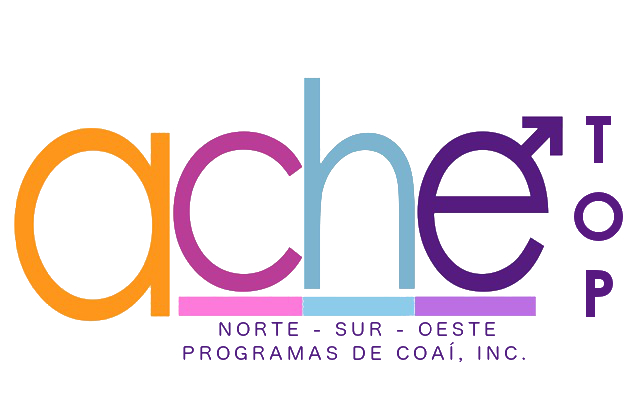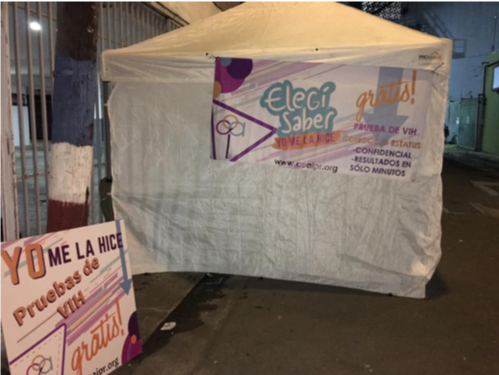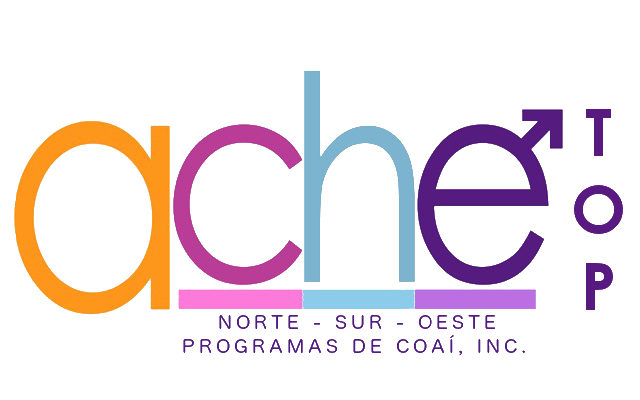Aché T.O.P.: A Safe Haven for Queers in the West
By: Lauce E. Colón Pérez

As I knocked on the door, I was unsure of what to expect from this place. With a warm smile on his face, a cup of tea in his right hand, and Bad Bunny’s hit song “Caro” playing in the background, César Concepción welcomed me to Aché TOP’s office in Mayagüez, seen in Fig. 1. A program funded by the CDC (Center for Disease Control) in Atlanta, within the non-profit organization of Coaí Inc., Aché TOP is a community project that provides HIV prevention orientation and resources for men that have sex with men and the transgender population for over a decade (Aché TOP). The Mayagüez office has been serving the westside community of Puerto Rico since its inauguration in 2009 and led by César as their team lead coordinator since 2015.
When I walked into the lobby, I could feel the love and pride beaming off the walls. From posters that featured LGBTQ+ couples and pride flags hung in various corners, to colorful pieces of art, the space seeks to make members of their community feel accepted and loved. César gave me a quick tour of the facilities, showing me their wide lobby, staff offices, and testing rooms for HIV and STD screenings. My favorite part of their facilities was their conference room, a space with a couch, tables and a drawing board, decorated with the biggest pride flag of the whole office hung on one of their walls.

César sat with me at their kitchen table to start the interview. “Aché is a phrase commonly used from African slaves during colonization and Yoruba tribes, which means así sea,” explained the Mayagüez team lead while he served himself another cup of tea, “[and] T.O.P. is an acronym for Taking On Prevention,” shown in Fig. 2. The name is aimed to convey an image that is relatable to the local community and our culture.
With offices in San Juan, the Aché TOP program has also expanded with branches in Juana Díaz and Mayagüez, providing prevention services to a population of higher risk and vulnerability. “When I say vulnerable or higher risk, I mean the LGBT+ community,” explained Concepción. “We live in a society that looks down upon being gay, lesbian, transgender, and so on… that stigma influences the healthcare services we receive.”
César spoke
about his own experience with this stigma when seeking access to PrEP, a new
medicine that prevents HIV by keeping the virus from establishing permanent
infection (Centers for Disease Control and Prevention). He shared that one
doctor accused him of being inconsistent with his condom use, while another one
said that it was illegal to prescribe this FDA approved medicine. “There’s a
lot of misinformation out there!” firmly stated Concepción, “Sensible healthcare
services are limited and the ones available mostly push heteronormative ideas
that further those stigmas.”
Aché T.O.P. provides this marginalized population with the knowledge, resources, and aids needed for the prevention of HIV. These efforts include the provision of more than 400 HIV test a year, individual or group interventions and educational strategies, such as offering workshops and distributing information pamphlets about STD prevention and the program’s services. They also distribute prevention kits, which are small bags with condoms, lubricants, and information pamphlets to amount to almost 1 million condoms distributed around the island a year.

This group of change-makers do not limit
themselves to their office, but extend their work during late hours to bars,
businesses, and public spaces to bring their services and engage the population.
“We have agreements with over 17 localities where the [LGBTQ+] community
frequents,” explained César, emphasizing that this is how they directly impact the
community (see Fig 2. Aché TOP Field Work).
Additionally, they also have a program, “gorritos
por correo” where prevention kits are sent out through the mail, providing
resources and information for harder to reach populations.
After finishing his second cup of tea, César invited me to his office to continue our conversation. This space was no different from the rest of the office. From his desk to all four walls of the room, everything was decorated with multiple posters promoting services along with photos of Concepción with his staff and members of the community.
When asked about the actions taken when an individual is tested positive with HIV, César leaned back in his seat and took a moment before responding. “One wouldn’t think that giving the news to someone that they are HIV positive is rewarding… and it’s definitely not,” answered Concepción, “We always give the news with a heavy heart, because it’s a lot of information to process and a big change in their life.” Nonetheless, through these experiences, the team realizes the importance of people knowing their status and the impact to public health and health services in general they provide. They take rapid action to provide these individuals with referrals and linkage to sensible care and services, as well as a support system for their difficult moments. “It is valuable for me to know that people that are often underserved can receive the services and help they need from our offices” shares César with a big smile.
As I left the Aché TOP’s office, I couldn’t help but smile all the way to my first class of the day. As a gay man that was born and raised in a conservative household, I can understand the struggle and embarrassment that can come from talking about sex, let alone about the prevention and treatment options for HIV. It’s through programs like Aché TOP where members of our community can not only receive condoms, testing, and information regarding their sexual health, but also receive these services with the respect, dignity and love they deserve. Gay, bisexual, transgender, queer, you name it… you have a safe place and people to talk to in Aché TOP.


